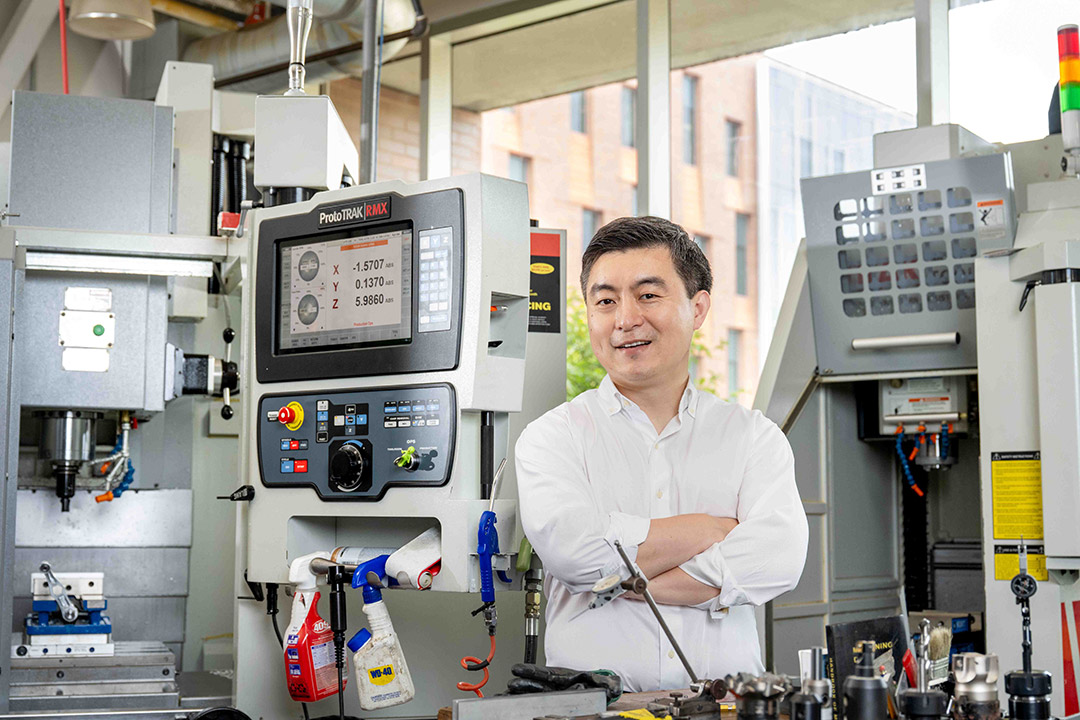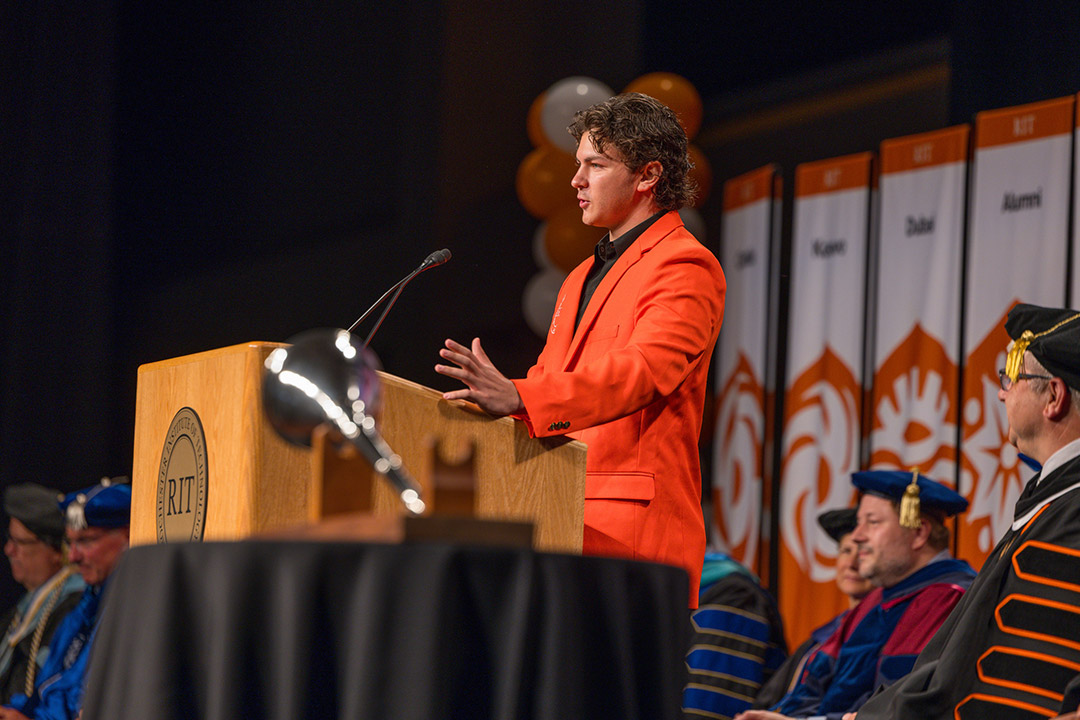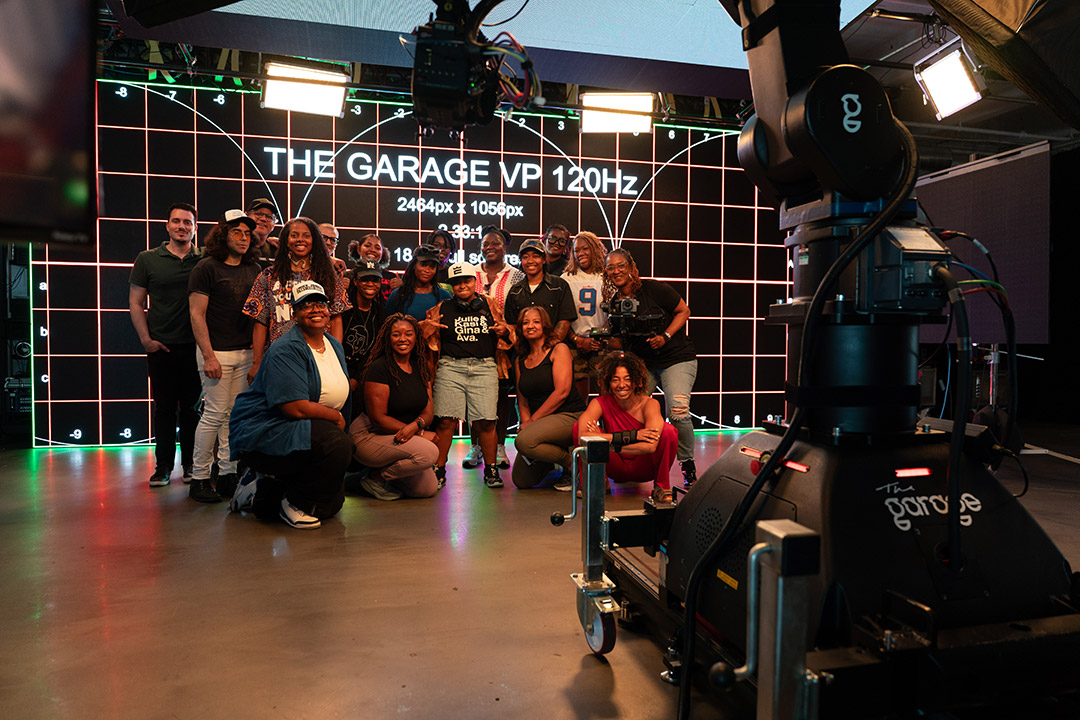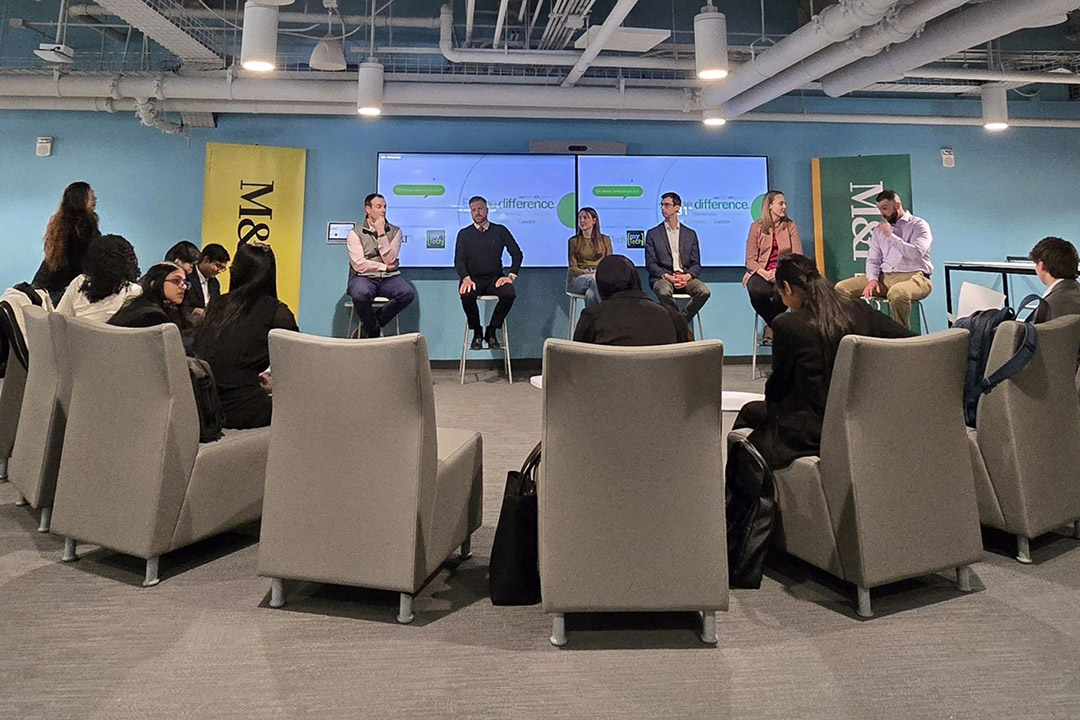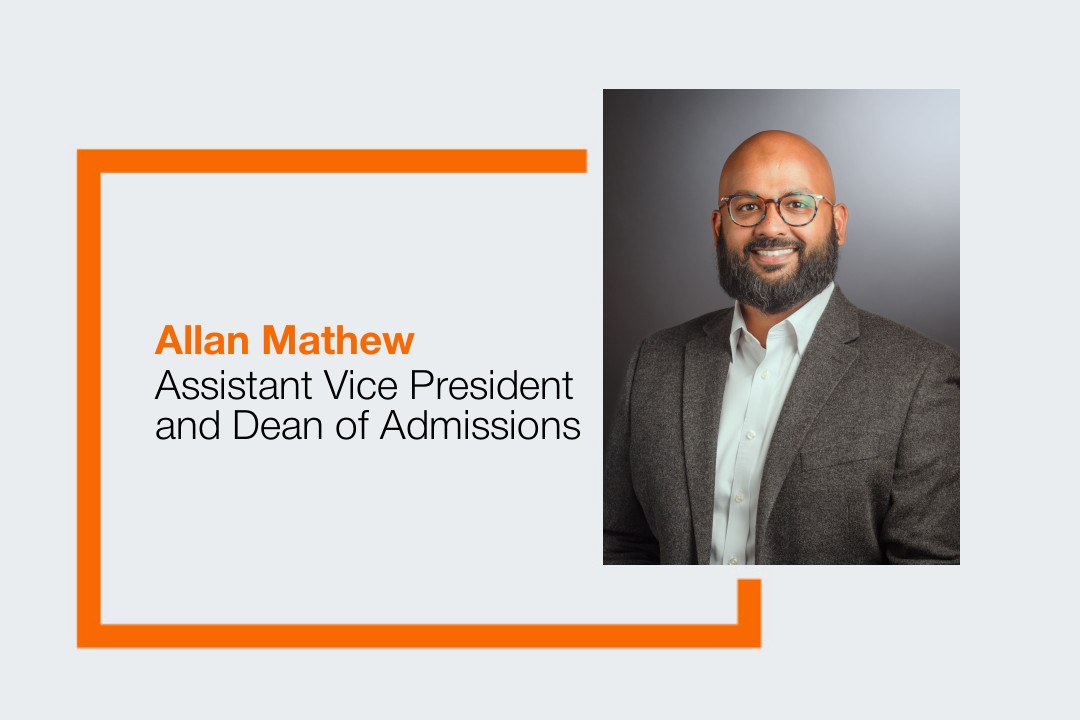Rui Liu will further advanced manufacturing workforce development initiatives
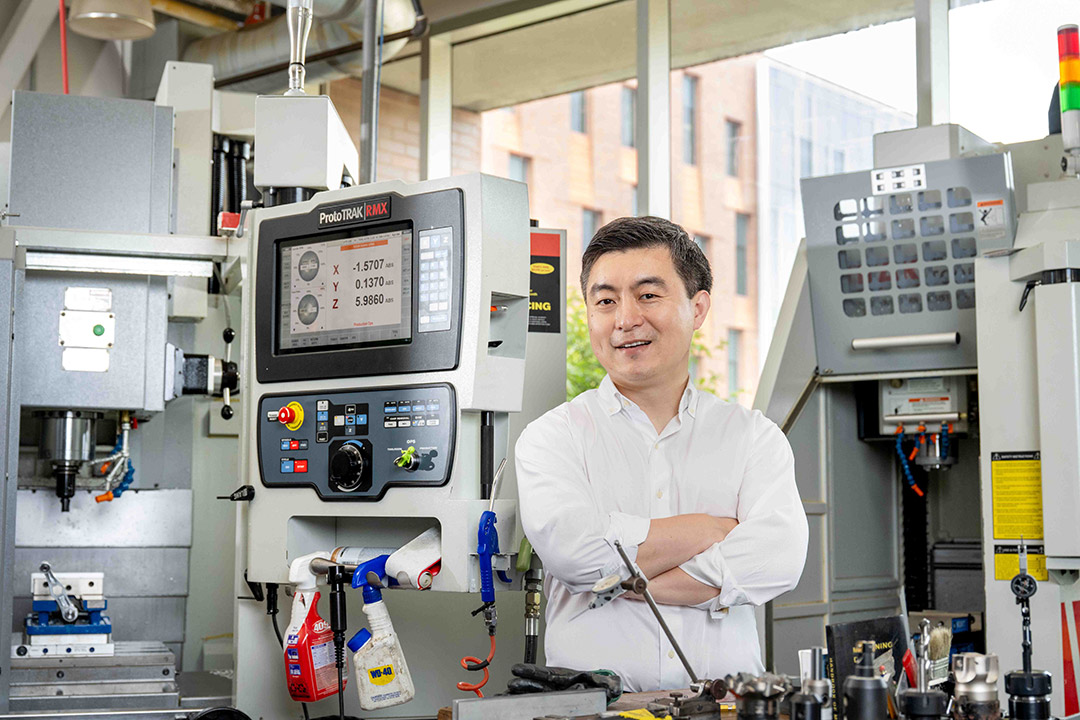
Pete Schuck/RIT Photography
Rui Liu, associate professor of mechanical engineering, is one of RIT’s newest CAREER Awardees, and will focus his five-year project on advanced manufacturing workforce training and development.
Manufacturing resurgence in the U.S. will be strengthened by a skilled workforce, and RIT faculty-researcher Rui Liu will lead a collaborative effort throughout the Finger Lakes region to support these efforts.
Liu was recently awarded a prestigious National Science Foundation CAREER award to further the advanced manufacturing workforce. The five-year proposal begins this fall and will consist of a comprehensive training initiative that bridges traditional manufacturing training programs with modern concepts of engineering product design and processes.
Each discipline—traditional training (sometimes referred to as apprentice programs) and engineering education—brings specific skill sets to the advanced manufacturing industry. Liu means to build a bridge between the two that had not been done as extensively before to achieve a more efficient training model that delivers broader learning outcomes, and cultivates a highly skilled, stable workforce for the industry’s long-term growth.
“What would be the best way to train individuals and what is the best way to use their knowledge?” said Liu, an associate professor of mechanical engineering in RIT’s Kate Gleason College of Engineering. “This is an exciting opportunity and a fairly new research direction. This new generation learns differently, and at the same time, in talking to industry leaders, they know what they need in the workplace. What is the best way for technology and people to grow together?”
The NSF receives thousands of proposals yearly, and only 14-20 percent across all directorates of the U.S. agency are funded. RIT has 17 NSF CAREER award winners working at the university.
Manufacturing represents 12 percent of the U.S. total Gross Domestic Product, and nearly 9 percent of the workforce is employed in a variety of manufacturing settings, according to the National Strategy for Advanced Manufacturing. Projected estimates suggest that by 2030, if the skills shortage is not addressed, there could be more than 2 million unfilled manufacturing jobs.
As part of the project, Liu will deliver a broad manufacturing workforce plan, augmented by modern learning strategies to better understand the cognitive learning required to ensure professional level competencies by a next-generation workforce. The project aims to gain a fresh perspective on the significance of experiential knowledge in manufacturing applications and proposes an innovative experiential learning approach to enhance knowledge transfer in product design and manufacturing education.
“This project seeks to advance a fundamental understanding of situated cognition and embodied cognition within manufacturing contexts and proposes an innovative experiential learning approach to enhance knowledge transfer in product design and manufacturing education,” said Liu. He also emphasized that the project, supported by the NSF’s focus on undergraduate STEM education, would add to foundational research about learning processes overall, and impact learning outcomes for undergraduate students who will make up the workforce.
Liu’s current efforts build on previous research based in Rochester with its historical connection to a changeable manufacturing industry. Working with the Rochester Technology and Manufacturing Association as well as Monroe Community College, he discovered specific need areas. Those include improving inefficiencies in current training programs, and the need to move manufacturing education theory toward more practical experiences, including building opportunities for those in technical roles-- whether it is furthering educational opportunities or advanced responsibilities. Another focus will be on ensuring critical institutional knowledge from retiring workers is retained and becomes a baseline of common knowledge and practice in advanced manufacturing.
This new work entails bringing together representatives from the K-12, community college, university, and business communities. All have been impacted by changes in manufacturing operations. Early collaborations among these groups are underway, including an industry workshop called Finger Lakes Advanced Manufacturing Education, where local industry and educational leaders discuss specific programming and training needs and work together to adapt curricula. Liu has also conducted several informational programs such as ManufactuRIT a summer camp for middle school students.
“What I am trying to do is build a more collaborative effort, for example a pathway program, in such a way to promote some very good students who want to increase their learning so we will get a perfect workforce that has both hands-on experience and very good conceptual knowledge. That is our ideal destination.”



